Know what to expect, so you can move forward
With comprehensive genomic profiling, you can feel assured that you and your doctor have the knowledge needed to make informed advanced cancer treatment decisions.
The Foundation Medicine testing process
Follow these steps—starting with talking to your doctor—to receive a report with your test results.
Step 1

Talk to your doctor
Your doctor will determine if a Foundation Medicine test is right for you.
Step 2

Your doctor will order the most appropriate test for you.
Your doctor sends a tissue or blood sample to Foundation Medicine for testing. You may already have a tissue sample available, or a new biopsy may be required. If a liquid biopsy sample is needed for testing, Foundation Medicine offers mobile phlebotomy—in-home blood draw—services at no additional cost.
Step 3

Your sample is analyzed in our lab.
Using comprehensive genomic profiling (CGP), we look inside your cancer’s DNA to find cancer-related mutations and biomarkers. After we receive your sample, results are typically available in 12 days or less for FoundationOne®CDx and 10 days or less for FoundationOne®Liquid CDx.
Step 4

Your doctor receives your report.
The information in the report may indicate if a targeted therapy, immunotherapy, or clinical trial could be an option for you. Your doctor will discuss your results and next steps with you. You can also request a copy of your report by contacting our Care Team by email or calling +1 (888) 988-3639
Financial assistance is available for qualifying patients. You can apply for financial assistance at any point before, during, or after the testing process.
Inside your report
No matter your results, your report can help inform treatment decisions. Your results may include mutations and biomarkers that have been identified. This information may lead to the following:

Targeted therapies that may be right for you

Immunotherapies that may be right for you

Clinical trials that you may consider
Even if your results do not identify a specific therapy or clinical trial for you, they can still provide valuable information to you and your doctor.
They may identify treatments that are not appropriate for you based on your genomic findings, they may confirm your current treatment, or they may point to future treatments that may become available.
For assistance on how to read your report, download the FoundationOne CDx patient report guide or the FoundationOne Liquid CDx patient report guide
Stay connected. Stay informed.
Advanced cancer can come with many unknowns. Foundation Medicine is committed to keeping you and your loved ones informed, educated, and empowered. Sign up to receive email updates from us.
Other important information about FoundationOne CDx
Intended Use Statement
FoundationOne®CDx is a qualitative next-generation sequencing based in vitro diagnostic test for advanced cancer patients with solid tumors and is for prescription use only. The test analyzes 324 genes as well as genomic signatures including microsatellite instability (MSI) and tumor mutational burden (TMB) and is a companion diagnostic to identify patients who may benefit from treatment with specific therapies in accordance with the approved therapeutic product labeling. Additional genomic findings may be reported and are not prescriptive or conclusive for labeled use of any specific therapeutic product. Use of the test does not guarantee a patient will be matched to a treatment. A negative result does not rule out the presence of an alteration. Some patients may require a biopsy. For the complete label, including companion diagnostic indications and important risk information, please visit www.F1CDxLabel.com.
Other important information about FoundationOne®Liquid CDx
FoundationOne®Liquid CDx is for prescription use only and is a qualitative next-generation sequencing based in vitro diagnostic test for advanced cancer patients with solid tumors. The test analyzes 324 genes utilizing circulating cell-free DNA and is FDA-approved to report short variants in 311 genes and as a companion diagnostic to identify patients who may benefit from treatment with specific therapies (listed in Table 1 of the Intended Use) in accordance with the approved therapeutic product labeling. Additional genomic findings may be reported and are not prescriptive or conclusive for labeled use of any specific therapeutic product. Use of the test does not guarantee a patient will be matched to a treatment. A negative result does not rule out the presence of an alteration. Patients being considered for eligibility for therapy based on detection of NTRK1/2/3 and ROS1 fusions should only be tested if tissue is unavailable. Patients who are negative for companion diagnostic mutations should be reflexed to tumor tissue testing and mutation status confirmed using an FDA-approved tumor tissue test, if feasible. For the complete label, including companion diagnostic indications and complete risk information, please visit www.F1LCDxLabel.com.
